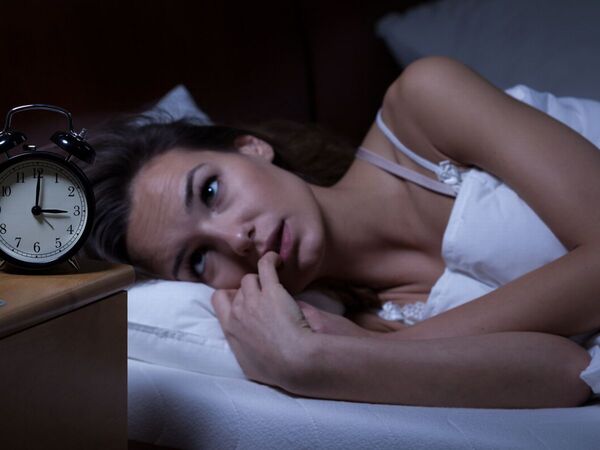Falling asleep quickly and enjoying a restful night is essential for overall health and well-being. However, many people struggle with falling asleep due to various factors such as stress, lifestyle habits, or environmental conditions. This comprehensive guide will explore effective tips and techniques to help you fall asleep faster and improve the quality of your sleep.
Understanding the Importance of Sleep
Sleep is a fundamental biological process that plays a critical role in physical and mental health. It allows the body to repair itself, consolidates memories, and supports cognitive functions. Chronic sleep deprivation can lead to a range of health issues, including weakened immune function, weight gain, and increased risk of chronic diseases such as diabetes and cardiovascular disease. Ensuring you get sufficient quality sleep is crucial for maintaining optimal health.
Tips for Falling Asleep Faster
1. Create a Relaxing Bedtime Routine
Establishing a calming pre-sleep routine can signal to your body that it’s time to wind down and prepare for sleep. This routine can include activities such as:
- Reading a Book: Choose a relaxing book and avoid suspenseful or thrilling genres that might keep you awake.
- Taking a Warm Bath: A warm bath can help relax your muscles and prepare your body for sleep.
- Listening to Soothing Music: Soft, calming music can help you relax and ease into sleep.
- Practicing Gentle Yoga or Stretching: Gentle movements and stretches can relieve tension and promote relaxation.
2. Maintain a Consistent Sleep Schedule
Going to bed and waking up at the same time every day, even on weekends, helps regulate your body’s internal clock. Consistency reinforces your natural sleep-wake cycle, making it easier to fall asleep and wake up refreshed.
3. Optimize Your Sleep Environment
Creating a comfortable and conducive sleep environment is crucial for falling asleep quickly. Consider the following tips:
- Keep Your Room Cool: A cooler room temperature (around 60-67°F or 15-19°C) can promote better sleep.
- Darken Your Room: Use blackout curtains or an eye mask to block out light, which can interfere with melatonin production.
- Reduce Noise: Use earplugs or a white noise machine to drown out disruptive sounds.
- Invest in a Comfortable Mattress and Pillows: Ensure your bed is supportive and comfortable to encourage restful sleep.
4. Limit Exposure to Blue Light
Exposure to blue light from screens (phones, tablets, computers, and TVs) can disrupt your body’s production of melatonin, a hormone that regulates sleep. To minimize the impact of blue light:
- Avoid Screens Before Bed: Try to avoid screens at least an hour before bedtime.
- Use Blue Light Filters: Install blue light filter apps on your devices or use screen protectors that block blue light.
- Switch to Red or Warm Light: Use dim, red, or warm-colored lights in the evening to reduce blue light exposure.
5. Be Mindful of Your Diet
What you eat and drink can significantly affect your ability to fall asleep. Follow these dietary tips:
- Avoid Caffeine and Nicotine: Both are stimulants that can interfere with sleep. Avoid consuming them at least 4-6 hours before bedtime.
- Limit Alcohol: While alcohol might make you feel sleepy initially, it can disrupt your sleep cycle and reduce sleep quality.
- Eat Light: Avoid heavy or spicy meals before bedtime, as they can cause discomfort and indigestion.
- Consider Sleep-Inducing Foods: Foods rich in tryptophan, magnesium, and melatonin (such as turkey, nuts, and cherries) can promote better sleep.
6. Practice Relaxation Techniques
Incorporating relaxation techniques into your bedtime routine can help calm your mind and body, making it easier to fall asleep. Some effective techniques include:
- Deep Breathing Exercises: Practice slow, deep breathing to reduce stress and promote relaxation. The 4-7-8 breathing technique, where you inhale for 4 seconds, hold for 7 seconds, and exhale for 8 seconds, is particularly effective.
- Progressive Muscle Relaxation: Tense and then slowly release each muscle group in your body, starting from your toes and working your way up.
- Meditation and Mindfulness: Focus on your breath or a calming image to clear your mind and reduce anxiety.
7. Limit Naps During the Day
While short naps can be beneficial, long or irregular napping during the day can negatively impact your nighttime sleep. If you need to nap, try to keep it to 20-30 minutes and avoid napping late in the afternoon or evening.
8. Get Regular Physical Activity
Regular exercise can improve sleep quality and help you fall asleep faster. Aim for at least 30 minutes of moderate exercise most days of the week. However, avoid vigorous exercise close to bedtime, as it can be stimulating.
9. Manage Stress and Anxiety
Stress and anxiety are common culprits of sleep difficulties. Finding effective ways to manage stress can help you relax and fall asleep more easily. Consider these strategies:
- Journaling: Write down your thoughts and worries before bed to clear your mind.
- Engage in Hobbies: Spend time on activities you enjoy to relax and unwind.
- Seek Support: Talk to friends, family, or a therapist about your stress and concerns.
10. Limit Fluid Intake Before Bed
Drinking too many fluids before bed can lead to frequent trips to the bathroom during the night, disrupting your sleep. Try to limit fluid intake in the evening and ensure you use the bathroom right before bed.
When to Seek Professional Help
If you’ve tried these tips and still struggle with falling asleep or staying asleep, it may be time to seek professional help. Persistent sleep issues can be a sign of underlying conditions such as insomnia, sleep apnea, or other sleep disorders. Consult a healthcare provider or a sleep specialist for a thorough evaluation and personalized treatment plan.










